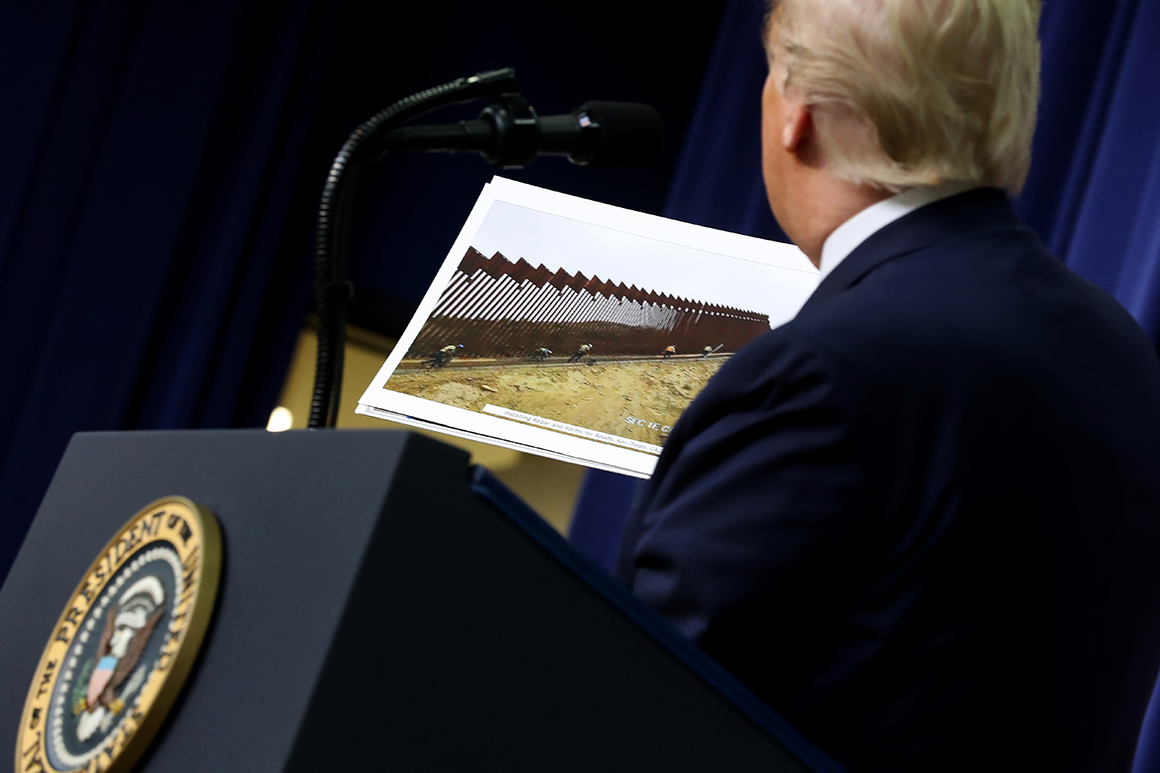
Trump, who has made immigration a top priority of his presidency, plans to push an issue that has long confounded Washington as he runs for reelection over the next nine months. With the impeachment trial behind him, Trump himself will soon determine whether to push for the bill this year or in a potential second term, according to a White House official.
Jared Kushner, the president’s son-in-law and senior adviser and the plan’s architect, has privately expressed confidence that the legislation can eventually move, according to half a dozen people familiar with the situation.
“Before you go to battle, you have to do preparation,“ Kushner said in an interview with POLITICO on Friday. “We have done the heavy lifting, the hard prep work. So if the Hill develops an appetite to move forward on an immigration deal, we will be ready. Ultimately, the president will consult with the leadership on the Hill and then decide, do we release the plan now, or do we put it out after the election.”
But across Washington, immigration is becoming the new “infrastructure week,” a punchline used to indicate a subject the Trump administration repeatedly and cheerfully resurrects, even when everyone knows it will never amount to any policy change.
A White House official said the bill has already garnered the backing of 22 GOP senators, including Sens. Mike Lee of Utah and David Perdue of Georgia — and predicts it will end up receiving support of nearly all 53 Republican senators. But others involved with the negotiations dispute those numbers.
“It’s a super hard problem, but our job is to try and tackle hard problems,“ Kushner said. “It’s easy to say what hasn’t been done, can’t be done and so often the media declare the president’s agenda items to be impossible — like it did with [United States–Mexico–Canada Agreement], the China trade deal, criminal justice reform or building a wall. But time and time again the president proves them wrong.”
On Friday, Trump met with members of the Border Patrol Council, a labor group, where he praised efforts that have reduced the number of immigrants crossing the U.S.-Mexico border. And he made a surprise mention of the legislation in his State of the Union address to Congress last week.
“We are working on legislation to replace our outdated and randomized immigration system with one based on merit, welcoming those who follow the rules, contribute to our economy, support themselves financially, and uphold our values,” Trump said.
Immigrant advocates say Trump is only pushing the issue so he can point to an immigration plan during his reelection campaign. The Supreme Court is also expected to rule this summer on Trump’s decision to wind down the Obama-era “dreamers” program that gave work permits and quasi-legal status to foreigners who came to the U.S. illegally as children.
“They want to muddy the waters,” said an immigration advocate who is familiar with White House conversations with lawmakers and activists. “It’s all politics.”
Trump made cracking down on immigration the centerpiece of his 2016 campaign, calling for a border wall and an end to the dreamers program.
But once in office, Trump’s immigration moves have been contradictory. His administration has implemented harsh travel restrictions on numerous majority-Muslim nations and cut refugee caps, but he has also touted plans to increase the number of overall immigrants and offer citizenship to those here illegally, a move most Trump-friendly immigration groups oppose. Trump has also occasionally surprised his supporters by discussing the need to treat immigrants with “heart.”
Trump attempted a major rewrite of the nation‘s immigration laws in 2018. The effort quickly died in Congress amid a backlash from immigration hawks, who blasted it for protecting millions of immigrants in the United States illegally.
The updated plan unveiled in May 2019 was significantly scaled back from that first initiative, though some have still dubbed it “comprehensive immigration reform.” Trump can‘t accomplish these goals without Congress, the White House official said.
“We‘ve done everything we can by executive order,“ the official said. “Everything we can do unilaterally we have done.“
The proposal would admit more high-skilled, well-educated immigrants while reducing the number of people who enter the U.S. based on family ties or whether their native country has a low rate of immigration. It also includes measures to boost security at the borders, including stricter visa screenings at ports of entry and tighter asylum rules, and expand the implementation of E-verify, an electronic system that allows businesses to check work authorization of employees. It would also restructure DHS and create a so-called immigration czar.
Source: politico.com
See more here: news365.stream






